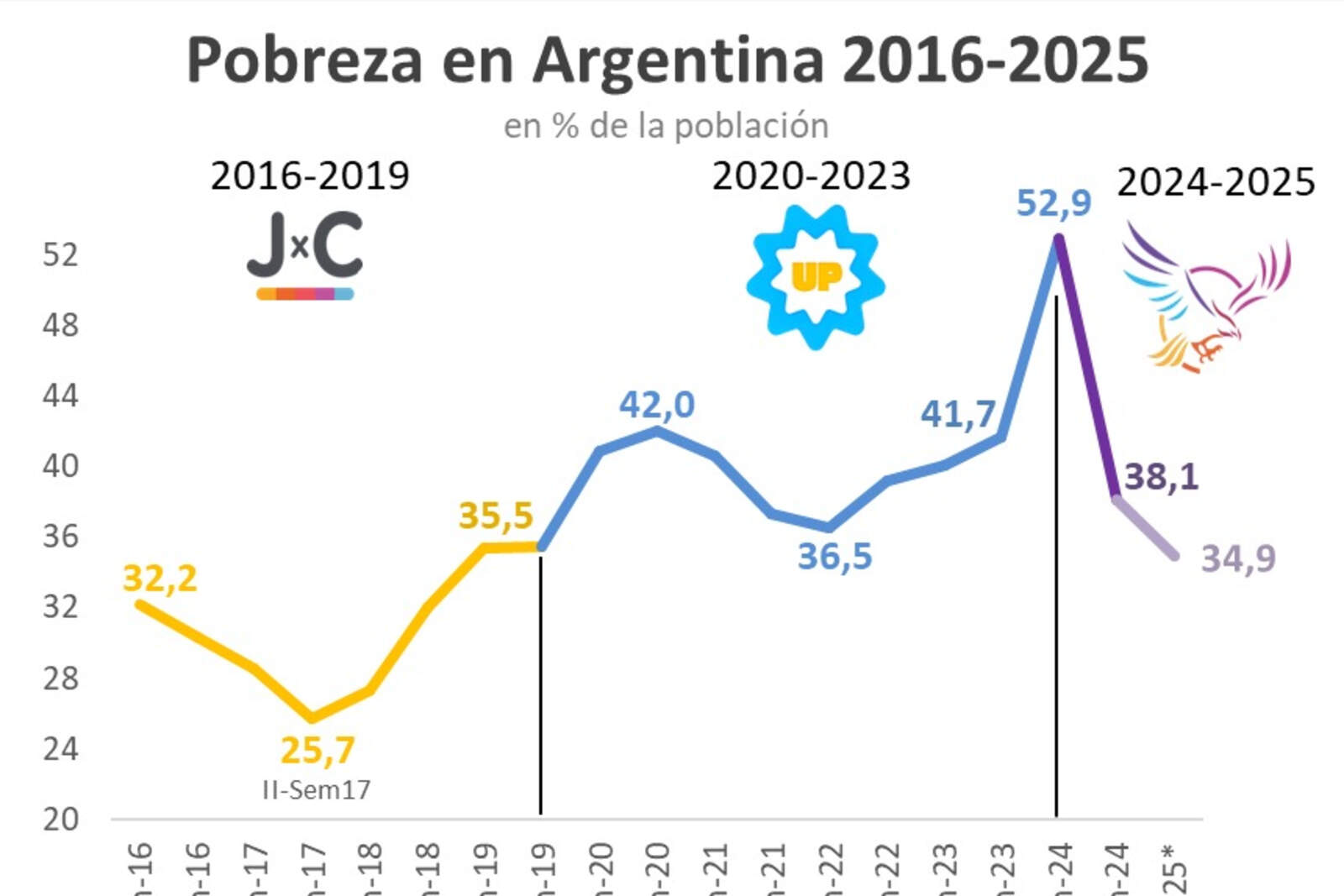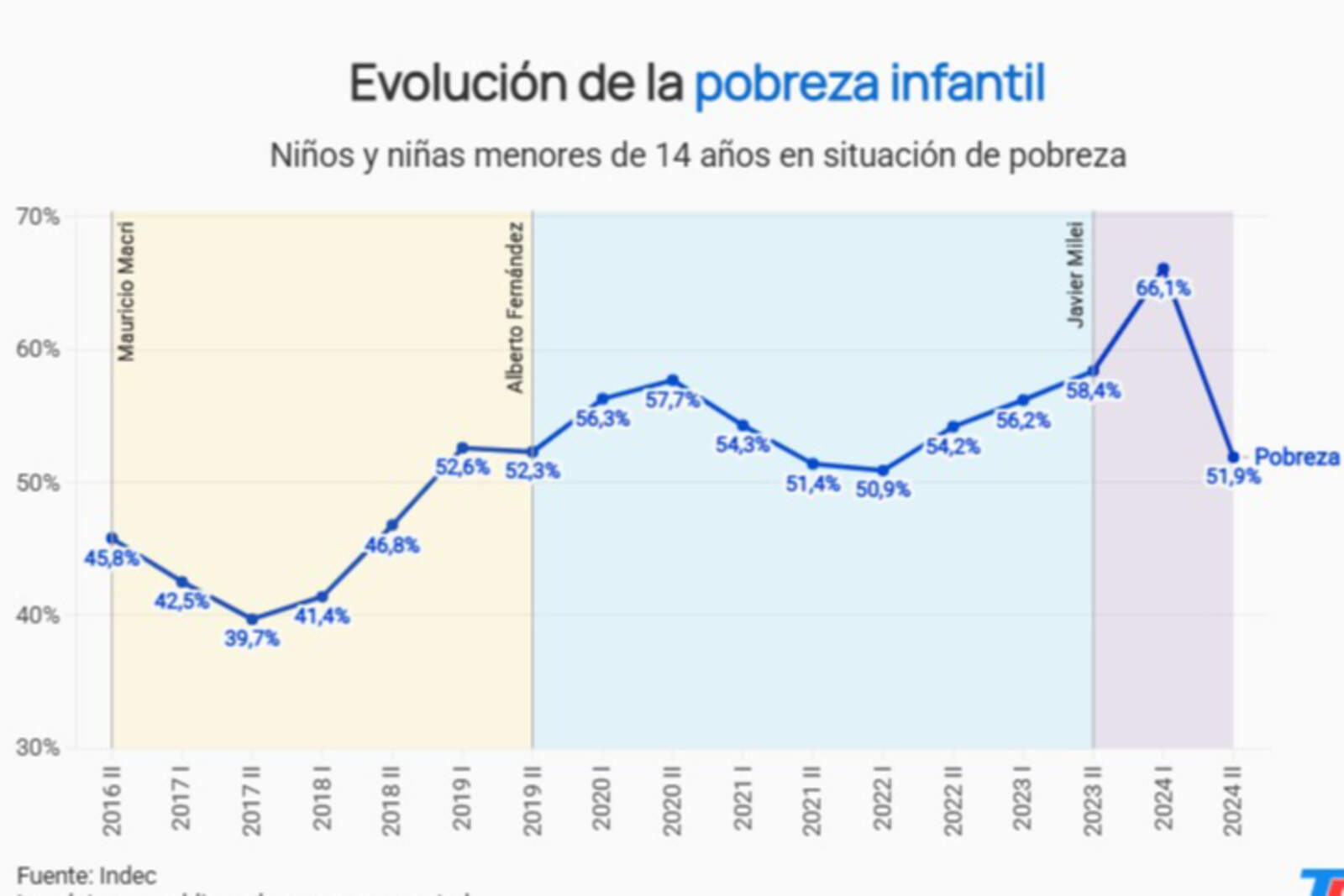Argentina is in recovery. The reduction of poverty and the impact of the liberal adjustment have marked a significant change in the country's economy under the administration of Javier Milei. The latest estimate indicates a substantial drop in the poverty rate, suggesting that the reforms implemented have begun to generate an impact on the most vulnerable sectors.
This phenomenon is occurring in a context of macroeconomic stabilization, reduction of inflation, and the correction of economic variables that were previously distorted by price controls and market restrictions.
The decrease in poverty: a result of the liberal adjustment
The decrease in poverty is a direct result of the liberal adjustment. The data show that poverty reached an alarming 52.9% in the first half of 2024, a figure that is the direct responsibility of the previous government and its economic policy, characterized by uncontrolled inflation and market restrictions.
However, in the second half of 2024, the poverty rate dropped drastically to 38.1%, showing the positive impact of the stabilization program promoted by the current administration. This reduction represents nearly 8 million people who have emerged from poverty in recent months, an unprecedented improvement in such a short period.

The government has prioritized correcting structural imbalances through an unprecedented fiscal adjustment, eliminating subsidies and reducing public spending. These measures have been accompanied by market liberalization that has allowed a gradual recovery of competitiveness and has begun to be reflected in the improvement of social indicators.
Inflation, which has historically been the main factor in the deterioration of the purchasing power of the most vulnerable population, has shown signs of slowing down, allowing a real recovery of income.









